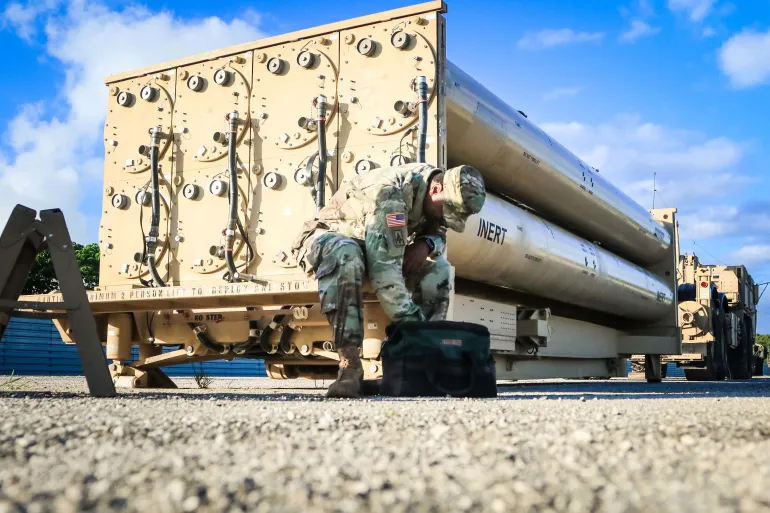The United States has announced the deployment of a Terminal High-Altitude Area Defense (Thaad) system and military crew to Israel, bolstering the country’s air defenses following a recent missile attack from Iran. The Pentagon stated that President Joe Biden ordered the deployment to “defend Israel” and Americans in the country from potential future ballistic missile attacks.

This decision comes in response to Iran’s launch of nearly 200 ballistic missiles towards Israel on October 1. While Israeli military forces reported intercepting most missiles, some did strike central and southern Israel. The US deployment underscores the escalating tensions in the region and the potential for further conflict.
Israeli Defense Minister Yoav Gallant has warned of a response that will be “deadly, precise and above all surprising,” while Iran has vowed to retaliate against any Israeli attack. This exchange of threats has raised concerns about a wider regional conflict.
The Thaad deployment is not unprecedented; the US previously sent a Thaad battery to the Middle East after Hamas’s attack on southern Israel in October 2023, and to Israel in 2019 for training and air defense exercises.

Iran claimed its missile barrage was in retaliation for Israel’s alleged assassinations of Hezbollah leader Hassan Nasrallah, a senior Iranian Revolutionary Guards Corps officer in Beirut, and Hamas leader Ismail Haniyeh in Tehran.
Meanwhile, Israel has intensified its campaign against Iran-backed Hezbollah, conducting deadly air strikes across southern and eastern Lebanon and parts of Beirut. This escalation follows months of cross-border fire between Israel and Hezbollah since October 2023.
As regional tensions continue to rise, international efforts to broker a ceasefire between Israel and Hamas in Gaza have thus far been unsuccessful, adding to the complexity of the situation in the Middle East.



